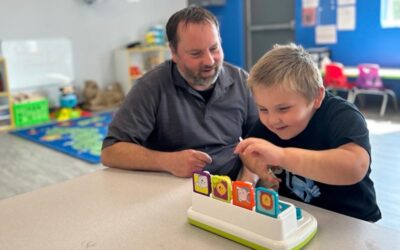As autism awareness and acceptance continues to spread, resources for families of children with autism have become more and more accessible. If you’ve visited our blog, you know that many of the resources available to parents are specifically meant to assist your child’s development. There’s no denying that all of those resources are important but, is something missing?
One of the most important aspects of supporting your child with autism is actually supporting yourself. This post is dedicated to tips for practicing self-care for parents and families of children with autism. If you find yourself feeling stretched thin and worn out, this one’s for you.
It’s no secret that childcare is a huge responsibility. It takes every ounce of patience, attention and dedication that you can give it. Raising a child with autism or other special needs adds yet another level of challenge. Below, we’ll break down the best tips for practicing self care for parents and families of children on the autism spectrum.
Deal with the Stress
The first step to any solution is always identifying the problem. To deal with the stresses of your day-to-day routines you should first pinpoint what it is that has you feeling stressed or overwhelmed. Though you may feel the clear answer to this question is simply “parenthood is stressful,” that’s not very productive. Instead, take a few moments to reflect on your weekly routines. What are those moments where you feel particularly rushed, stretched thin or overwhelmed? If it helps, write those moments down.
Once you have those tangible moments pinpointed, you can start making an action plan for how to make those moments less stressful. Focus on tangible things: can you adjust the timing of this routine? Can your work schedule change? Is there an after school programs available? Another tangible way to reduce the stress of your day-to-day is to build self care into your routine.
Yes, we know. That may seem “impossible” as you fill every waking moment with something that supports your family, but keep in mind, taking care of yourself helps you better support those that rely on you.
Take Care of your Body (and mind)
So, how do you actually get around to taking care of yourself? Once you’ve found some time to actually practice your self-care, you have to decide what the best use of that time is. An obvious choice is exercise.
It’s been proven time and time again that exercise is an excellent stress reliever. It has amazing benefits for both your mind and body. Other than helping keep your body healthy, exercise also helps increase your energy levels, sleep better and is a great gateway to other healthy decisions. Find the exercise that works best for you and make the most of your self-care time. Perhaps it’s time to join a gym, or if you want to start small, go on walks, jogs or biking. There’s also plenty of in-home options out there.
Do nothing.
Well, maybe not nothing, but something that requires less brain power than what you would usually do with the time you’ve set aside. Enjoy a show, read a book, or meditate. Whatever it is, if you thrive when you have some alone time, make sure you do something alone when you need to.
Find a group.
Maybe alone time isn’t what you need. Instead, you need time around other people who can sympathize and understand what you go through on the day-to-day. Luckily, there are many online and in-person support groups for families of children with special needs. If you can’t find one that fit your needs, try creating one!
Chances are, if you’re around other families of children with autism or other special needs, they know the challenges you face. Find your people and learn how you all can support each other in productive ways.
These are some of the basics of self-care, and a great place to start. Take time for yourself and find out what you need. For more autism-related news and tips, don’t hesitate to reach out to us on our contact page, visit our blog, and follow us on Facebook, Instagram, and Twitter.



